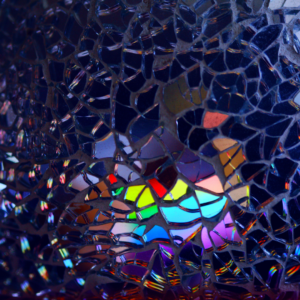When faced with discrimination from the heterosexual community, the LGBTQ+ community stands united with picket signs. During televised rallies or protests, they wave their clenched fists and bare their teeth as signs that they are ready for battle. Whether it is a baker who refused to make a cake for a same-sex couple, the clerk who refused to issue a marriage license to a same-sex couple, or the battle for marriage equality, they fight valiantly to the bitter, broken end. They fight because they are united. They fight because they are family. They fight because they all bear the ugly brunt of discrimination, which puts them all under siege.
However, beneath those wars, in the deep, dark, rotting corners of the LGBTQ+ community, exist various civil wars that position soldier against soldier with clenched fists and bared teeth. Biphobia is one of those civil wars that is valiantly fought by many. The Human Rights Campaign (HRC) simply defines ‘bisexuality’ as, “someone who can be attracted to more than one gender. ” HRC further explains that “biphobia is prejudice, fear or hatred directed toward bisexual people.”
Many champion the cause of ridding the community of biphobia. In a HuffPost article titled “Dear Lesbians And Gays I’m Bisexual And You Treated Me Like Crap: I’m done with you,” activist and writer Beth Sherouse rebukes biphobia within the gay and lesbian community, writing, “But I’ve finally accepted the fact that you will never love me back because I’m a bisexual woman, and you have shown me time and again that you are not here for me or my community. Sherouse fights biphobia within the LGBTQ+ community by essentially stating that she is done with a community that rejects her because of her bisexuality.
Some individuals in the LGBTQ+ community that are affected by biphobia have chosen to speak up about it in creative ways. Speaker, teacher, writer, and activist Robyn Ochs sounds the alarms against biphobia stating, “A declaration of bisexual identity often results in discrimination, hostility, and invalidation. Gay and lesbian identifying individuals frequently view us as either confused or, interlopers possessing a degree of privilege not available to them.” Similarly, in a Ted Talk titled Bisexuality: The Invisible Letter “B,” Misty Gedlinske very pointedly contends that “…the problem is not being bisexual. The problem is how other people misunderstand it and respond poorly to it.” Ochs and Gedlinske fight against biphobia by educating their audiences on what bisexuality is, thus dispelling stereotypes. Bisexual Resource Center lists the stereotypes that are associated with biphobia. The list includes the following:
• Bisexuals are sexually greedy, promiscuous,
and carriers of sexually transmitted infections (STIs).
• Bisexuals are untrustworthy or traitors to the
LGBT community, because they can take
advantage of “heterosexual privilege.”
• Bisexual women only aim to seek sexually
attention from heterosexual men.
• Bisexual men are too afraid to fully “come out”
and therefore are “really just gay.”
In a Rolling Stone article titled “Why Saying ‘Bisexual’ Is More Important Than Ever: With a health crisis growing, it’s time to stand up and be counted,” reporter Eliel Cruz explains the importance of bisexual representation, stating that “for some bisexual people, society’s unchallenged biphobia makes it easier to identify as straight, gay or label-less. But openly claiming bisexuality as a sexual orientation is more important than ever.” Cruz fights biphobia by asserting that bisexuals should take a valiant stand in regards to representation, which will fight the stigmas associated with bisexuality.
Biphobia: Resources
o Mental Health Biphobia Brochure
● National Domestic Violence Hotline
● GLAAD
Did you enjoy this story? Subscribe to our weekly newsletter to find out when new stories are published.
Learn how to join our Writers Cohort here.
Follow us:






